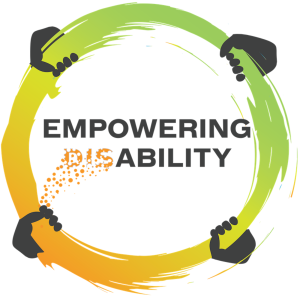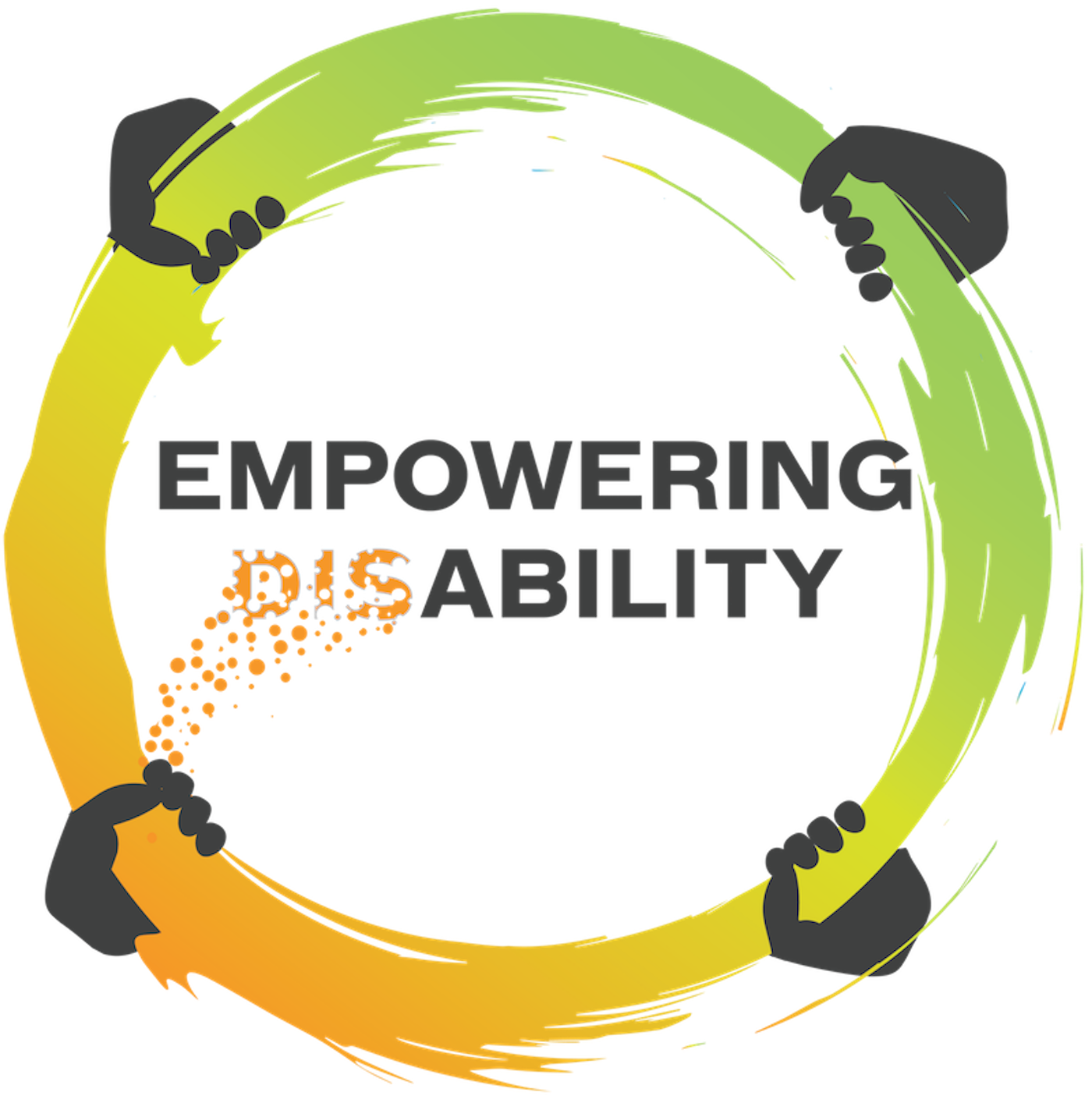Episodes

Thursday Nov 02, 2017
#035: Thinking Differently About Disability, with David Hasbury
Thursday Nov 02, 2017
Thursday Nov 02, 2017
This week’s guest on the podcast/ blog is David Hasbury. David shares the history of disability, and disability services to help us understand how we got to where were are today. David also shares how we can think differently about disability to create a world where people with disabilities are included as citizens.
For more than 30 years, David has been committed to empowering people with disabilities to creatively shape the world around them. Since 2008, Dave has collaborated with Patti Scott, his wife and Neighbours C.E.O., in supporting people with disabilities, families, communities, organizations, and governments in making it possible for people with disabilities to live as contributing citizens and community members, where all can make a difference. David has been involved with person-centered planning since the 1980, and does his work all across the world.
This blog is a summary of my conversation with David, and includes many of the insights that he shares on the podcast.
Why Are Disability Services The Way They Are?
To answer this question David shares the history of developmental disability and the 3 big waves he sees.
Wave 1: In the 1800’s there was no definition of developmental disability. People were labeled as strange, crazy, or imbeciles and often thrown into jail. There was a lot of shame with disability, and people lived with families and stayed on farms.
Wave 2: Eventually, governments discovered people with developmental disabilities didn’t belong in jail, and a more hospital like setting became the norm - institutions. It was a progression from jail, and it was 'protecting' people in the community from these rather ‘odd’ folks. This lasted, for 80 years, until the 1950’s and 1960’s when the (poor) treatment of people in institutions became exposed, and it was realized that people were being warehoused, and this wasn’t right either.
Wave 3: Families that kept their sons and daughters at home got together and started to find support for their children and they focused on education in classrooms, giving birth to ‘special needs’ classes. We progressed from seeing people as strange and crazy to the ‘r-word’, and we categorized people as trainable, educable, or severely or profoundly disabled. We formed groups/ places for people to go based on these categories. The government the applied these categories to residential life as well.
We were looking for places for people to go where they would have ‘appropriate coverage’ and safe places in community. Creating places became the thing we did and the government started buying the services of organizations (many founded by groups of parents). The government bought places in community where people with developmental disabilities would be covered (kept safe).
The Next Wave: In the last 30 years, the idea of people being individuals and citizens evolved, and person-centered planning emerged. We started to imagine people with developmental disabilities as citizens, and think about how can they be included in community.
People with developmental disabilities want a real education, a real job, a real life - not special.
In the 2000’s the government in Ontario started to fund this type of support (Passport) to help provide these opportunities for people with disabilities.
Creating places and having coverage is still the dominant model. Even with person-centered funding, people are still buying places and coverage with these support dollars. We need to think differently about that. The model of placement and coverage was not designed with the idea of citizenship, control and inclusion, and community involvement in mind. It’s really difficult to make that happen (person-centered planning) in people’s lives when you are using an old system that was designed for a different purpose. And so, we need to do things in new ways, and we need to think differently.
Placement and coverage is still dominant. In Ontario, more than 3/4 of the government budget is spent on placement and coverage, and is serving less than 1/3 of the population. So, 2/3 of the population is getting very little support.
Shifting To A More Person-Centered Approach.
We need to think not so much about buying spaces, but we need to think about investing the little bit of resources we have available to grow our presence in the area the individual is truly interested in.
Historically, we haven’t imagined growth for people historically for people with developmental disabilities. For example, we might think this person has the mind of a 5-year-old, and we imagined that life stopped at some point for that person.
We might be stuck in a placement and coverage system, but how can we start to take some of these resources or negotiate these resources to use them in an individualized way
Start with what can you do. Probably the most disabling thing is actually thinking disabled, which is can’t focused
How Do We Make The Person-Centered Shift?
Individuals & Families:
Imagine the life that this person wants to have! What does Jane want to do with her time? Where does she want to be? Who does she want to be with? It is important for families to think about the person that they love in relation to other people in a community and being valued for who they are. We need to start to think about people differently.
Up until someone is adult we focus on that person’s problems; in education, in health care, in support, and we need to think differently when it comes to community life. In community life, we need to think about what that person brings (their gifts, and contributions).
There isn’t a group of citizens out there, we each (individually) need to be able to decide where we are going to go, and were we are going to put our time, energy and resources. Families need to think, what can we do to make this possible for those that they love.
If Jane loves music and Jane can start going to karaoke night once per week for 2 hours every week, for only 2 hours, people will start to recognize that Jane loves singing and she can start to build relationships. Then, there is then a possibility for this to become more (an investment).
If we invest in things that we love, those things grow. But, we have focused on placement and coverage because we have thought that people don’t have something to offer. That is the shift, people do have something to offer and we have to give them the opportunity to grow that.
Government and Service Organizations:
We need to think about people as individuals.
We need to think about the resources for individuals individually. Resources need to be individualized, money needs to be individualized, and people need control over that money. The people hired to support people with intellectual (developmental) disabilities needs to be individualized. There is no generic intellectual (developmental) disability.
If you are embedded in a placement and coverage model, you can’t get to citizenship from there. The principals and structure (of safety and somewhere to go) won’t let you get there (to citizenship). For example, when there is grouped support of 3 people (with a developmental disability) in a house with 1 staff person and Bob wants to go out, either everyone has to go, or Bob can’t go. (A question to consider: Is this ordinary?)
From a government perspective, 20-25 % of the population of people with a developmental disability is getting 80-85% of the resources, this isn’t sustainable.
Dave’s partner, Patti Scott created an organization serving people that have a developmental disability called Neighbours in New Jersey, USA. Neighbours empowers their customers by giving them choice and control of their life including; their staff, what they do with their time, and where they live. Patti Scott is joining me on an upcoming podcast, so be sure to tune in to learn more about Neighbours.
A big thank you to Dave Hasbury for joining us on the podcast and sharing his insights to help us think differently about disability!
Thank you for reading to today's blog! If you liked this episode and think someone you know would benefit, please share it with them! Be a part of the change to think differently about disability.
Love & Respect,
Eric
Resources:
Website: Neighbours-international.com
Follow Neighbours International on Facebook: https://www.facebook.com/NeighboursInternational/
If you received value from this content please leave me a review on iTunes. By leaving a 5 star review on iTunes you make the Empowering Ability Podcast more discoverable, and more families will benefit. Click Here To Leave a Review on iTunes
The Empowering Ability Podcast is available on iTunes and various other apps so that you can listen while on the go from your smartphone!


No comments yet. Be the first to say something!